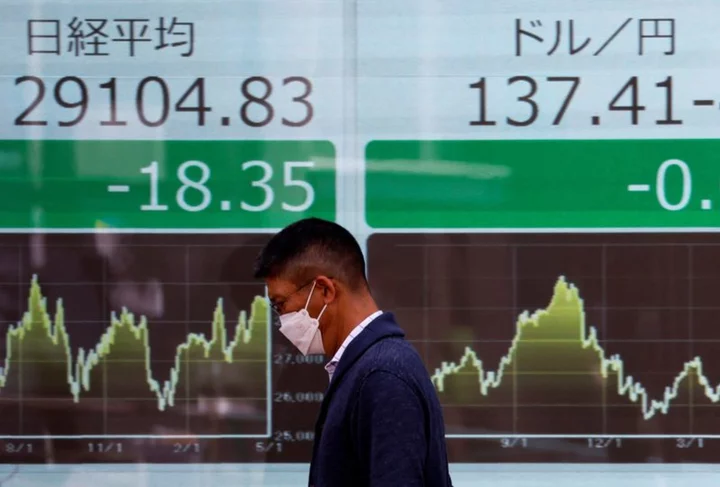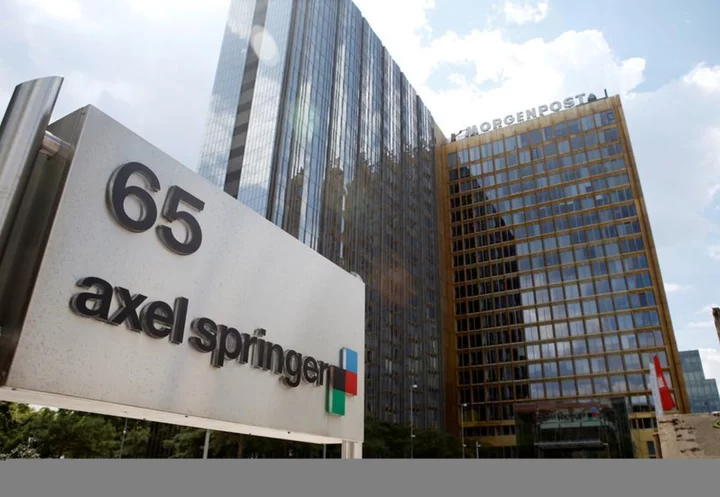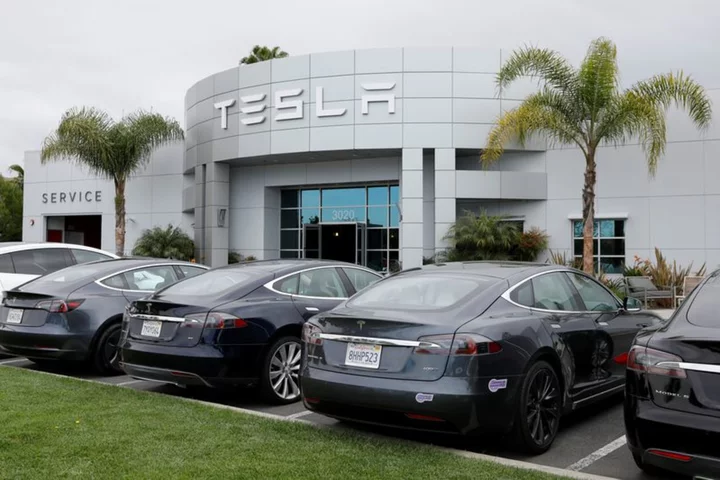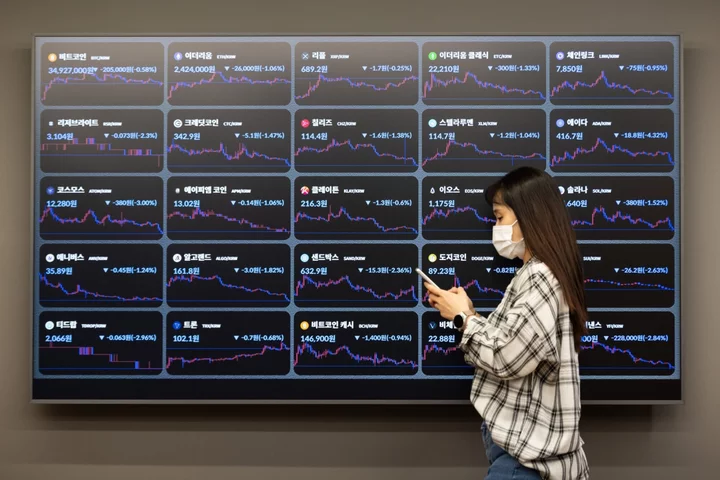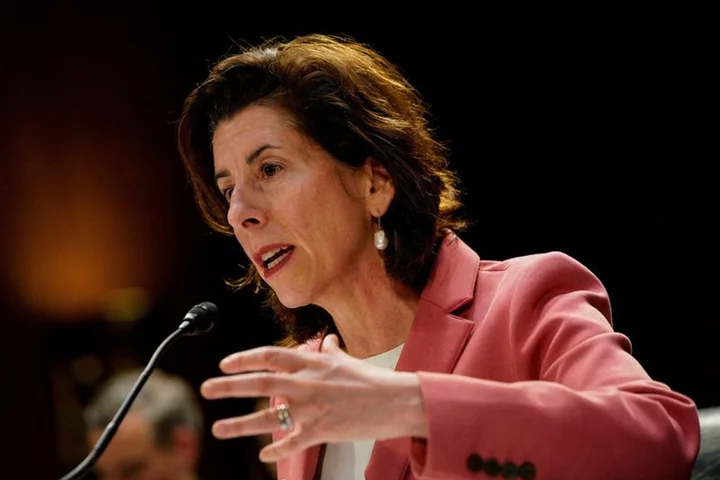By Rodrigo Campos
NEW YORK Argentines will on Sunday move a step closer to deciding who will run the $600 billion economy engulfed by a deep crisis that involves runaway inflation, a dearth of U.S. dollar reserves and an electorate with little trust in its currency.
Regardless of who wins the race between libertarian populist Javier Milei, center-left economy minister Sergio Massa and center-right ex-minister Patricia Bullrich, the next government will have to deal with a gargantuan pile of debt and a peso so weak that the leading candidate is on a platform to scrap it.
Investors arrive to the election looking at an economy in recession as a crippling drought hit the key agricultural sector. Inflation runs at 138%, local interest rates stand at 133% and the black-market peso has lost over 60% of its value this year. The gap to the official rate is above 150%.
On the line is the survival of the country's $43 billion program with the International Monetary Fund and the possibility that Argentina defaults on its debt for a 10th time.
"The next government will face substantial execution challenges in a context of accelerating inflation (and) lack of meaningful FX reserves," said Alejandro di Bernardo, investment manager for fixed income – EM debt at Jupiter Asset Management.
Recent rising government spending was "being financed by central bank monetization, which had the unintended consequence of fueling inflation expectations even further," added di Bernardo.
Polls show primary vote surprise victor Milei in the lead. Ruling coalition candidate Massa has expanded subsidies and cut taxes as he jockeys with Bullrich for the second spot in an expected November runoff. Polls were widely misleading ahead of primaries, adding to uncertainty.
IN GREEN WE TRUST
Milei has promised to shut the central bank and dollarize the economy to cut inflation at the root, recommending Argentines stay away from the peso which does not even serve as "excrement".
Deputy Economy Minister Gabriel Rubinstein posted on social media site X, formerly known as Twitter, that the dollar would remain at 350 pesos to the dollar after Sunday's vote, turning to a 3% monthly crawling peg starting Nov. 15.
The currency outlook is murky at best. The peso faces three main sources of uncertainty, warns JPMorgan: inflation, the gap between the official and black rates, and the chance each candidate has to win. The bank sees the exchange rate at 750 by the end of the year and 1,400 next September.
Argentina's monetary base is just over $20 billion at the official exchange rate of 350, but drops to $8 billion at the black market rate. Excluding a currency swap line with China announced on Wednesday, forex reserves are negative.
"They don't have enough dollars to convert the monetary base so they would have to issue external debt just to start to dollarize," said Elijah Oliveros-Rosen, chief economist for emerging markets at S&P Global Ratings.
"Dollarization would not cure the main issue in Argentina, which is a really large fiscal problem."
Despite different approaches, all three candidates agree cutting spending is necessary. Argentina is committed to a fiscal deficit of 1.9% of GDP in its IMF program - estimates see it closer to 3%.
Milei and Bullrich have spoken of slashing subsidies, but the government has leaned into them, even informing voters that 59 peso bus tickets would cost 700 pesos without state support.
Financing subsidies is partly behind the increase in government debt, which surpassed $400 billion in the second quarter to hit historic highs, data from the Institute of International Finance shows. The total debt-to-GDP ratio is expected to rise to 89.5% this year from 84.7% in 2022, according to the IMF.
"The reality is sobering in the sense that Argentina has just too much debt," said Zulfi Ali, portfolio manager with a focus on Latin America for PGIM.
Analysts at Oxford Economics see default as "virtually unavoidable" by 2025 but with fair value between 30-35 cents on international bonds, current prices are attractive - if you can stomach the risk.
Unclear FX and capital controls policies compound uncertainty in local bond markets, said JPMorgan, recommending staying on the sidelines of the $125 billion domestic sovereign debt market while remaining market-weight on international notes where uncertainty is already priced in.
With relatively small payments due on commercial debt and expectation that the current IMF program will continue to pay for the previous one, Argentina's debt pile may not be the most urgent issue, said Shamaila Khan, head of fixed income for Emerging Markets and Asia Pacific at UBS Asset Management.
"Debt does not need to be an immediate priority," said Khan, who doesn't expect dollarization to top the near-term list either.
"It will be important to exhibit a commitment to orthodox policies through devaluation and fiscal adjustment as well as establishing cooperation with the IMF."
Especially the latter could be hard for Massa, a key figure amid the deteriorating relationship with the Washington lender.
However, having been at the table could also help him, according to Hans Humes, chief investment officer at Greylock Capital Management.
"(Massa) has stepped on the IMF toes and they don't love him, but he's a known quantity," Humes said.
(Reporting by Rodrigo Campos, additional reporting by Karin Strohecker; editing by Susan Fenton)


